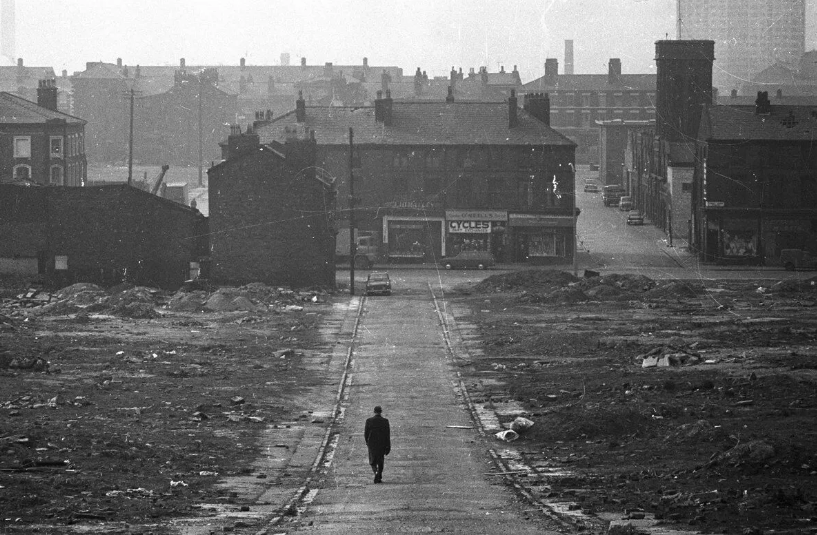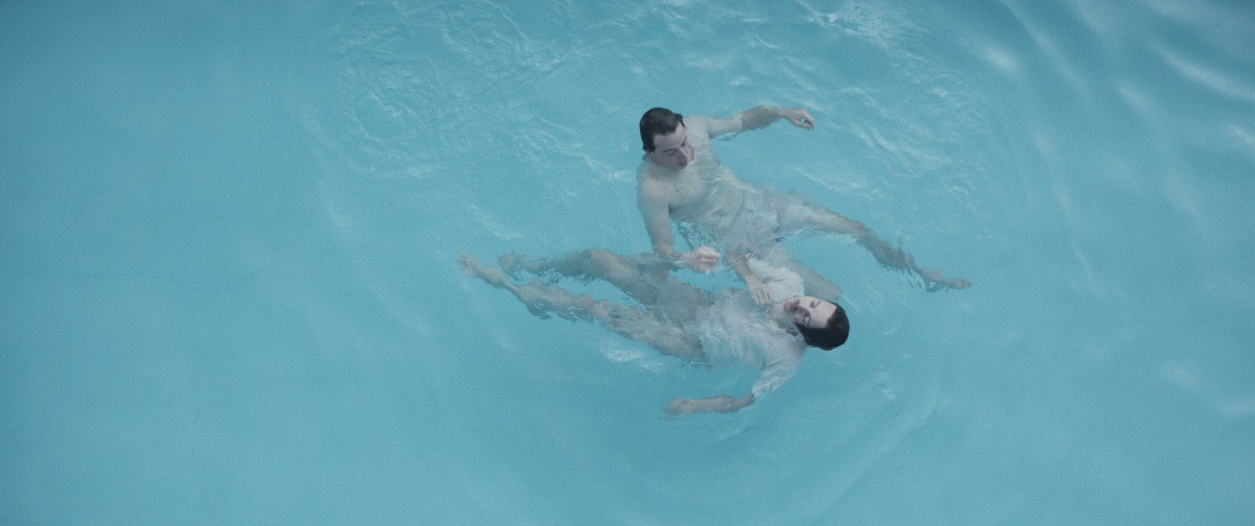(Terence Davies, 2022, UK, 136 minutes)
His first, 1988's Distant Voices, Still Lives, drew on his working-class childhood in Liverpool. His latest, Benediction, is less explicitly autobiographical, and yet it's a portrait of an artist who fears, in his later years, that he hasn't received sufficient recognition for the fruits of his labors. That artist, poet Siegfried Sassoon, is also queer and Catholic, so it's hard not to see the parallels with Davies (though he renounced Catholicism decades ago).
The young Sassoon (played by Jack Lowden, most recently of the excellent spy series Slow Horses) only gets to enjoy a brief moment of unalloyed happiness, at a performance of Igor Stravinsky's "Rites of Spring" in 1914, before Davies plunges him into the hell of World War I. Instead of recreating battle sequences, the director uses black-and-white archival footage, much as he did in his collage-style ode to Liverpool, 2008's Of Time and the City.
After losing his brother, with whom he had enjoyed that Stravinsky concert, and suffering an injury serious enough to remove him from the front, he decides he's seen enough. He writes a letter to his commanding officers stating that he won't return to fight a war that Great Britain is prolonging purely for reasons of "aggression and conquest," leading to hundreds of thousands of fatalities and debilitating injuries. He's willing to accept the consequences of his actions, no matter how dire. Instead of a court martial, however, they send him to a hospital in Scotland for soldiers suffering from "nervous disorders," a more polite term for shell shock.
The experiences of Sassoon and his fellow patients at Craiglockhart War Hospital formed the entirety of Gillies MacKinnon's 1997 adaptation of Pat Barker's Regeneration, which I fear has been lost to the mists of time, despite fine performances from Jonny Lee Miller as a young lieutenant and Jonathan Pryce as psychiatrist Capt. Rivers (in an interesting coincidence, Pryce plays Lowden's grandfather, a retired MI-5 agent, on Slow Horses).
In Davies' film, Sassoon finds a sympathetic ear in Capt. Rivers (a very good Ben Daniels), who admires his poetry and has no intention of transforming him--or any patient--into a martyr for the cause. When Sassoon refers to "the love that dare not speak its name," Rivers reacts with empathy. "You're not alone in that respect," he says softly. The two men would remain friends for life.
At Craiglockhart, Sassoon also meets fellow poet Wildred Owen (Matthew Tennyson, a real-life descendent of poet Alfred, Lord Tennyson) with whom he forms a bond. When Wilfred announces that he's been cleared to return to the front, Sassoon is heartbroken. They will not see each other again.
If Sassoon's affair with Owen appeared to be chaste, he enters into a passionate, tempestuous relationship with composer and Lodger star Ivor Novello (a delightfully bitchy Jeremy Irvine). His brand of popular music may seem gouache to Sassoon's refined tastes--much like Terence Davies, he prefers classical--but the heart wants what the heart wants. Sassoon's wayward heart also wants Stephen Tennant (Calam Lynch), who will prove equally challenging.
Sassoon's artistic companions include Robbie Ross (Simon Russell Beale from The Deep Blue Sea) and poet Edith Sitwell (Lia Williams). Though Davies doesn't mention it, Sitwell fell in love with him. She won't be the only woman to succumb to his charms. When it comes time for him to start living like a heterosexual man, as gay men of his class tended to do, he leaves his former life behind, though the ghosts of old lovers will haunt his days.
Instead of a strictly chronological telling, Davies alternates between the young Sassoon and the older man of the 1960s (a pinched Peter Capaldi, miles away from his comedic performances). In these shorter sequences, which occur mainly towards the end, the light appears to have gone out of his eyes.
As the young Sassoon, Lowden is terrific. In fact, I haven't seen him give a bad performance yet. He's particularly persuasive as a barrister defending a restauranteur in Mangrove, part of Steve McQueen's very fine 2020 Small Axe series. All told, he's chosen his parts wisely and well, a pattern that recalls Tom Hiddleston, who starred in Davies's 2011 Terence Rattigan adaptation, The Deep Blue Sea, which also involved a troubled ex-soldier.
Unusually, Benediction is the rare film about a writer that never actually shows him writing.
Davies is more interested in Sassoon's relationships and how they shaped him. And in the Great War, the source of a devastating trauma from which he would never fully recover. Davies almost, but not quite, suggests that it might have been preferable for Sassoon to have died in battle, like the ever-young Wildred Owen, than to age into a haunted, embittered old man.
I couldn't say whether Terence Davies is haunted or embittered, but I've always assumed that the long gaps between his films indicates a difficulty in getting them made. I sincerely hope Benediction isn't his final film, but if it is, he'll be going out with as much style and grace as he came in.
Images from Flickering Myth (Jack Lowden), Slant (Liverpool in Of Time and the City), Distractify (Gary Oldman and Lowden in Slow Horses), DP Nicola Daley (Lowden and Matthew Tennyson and Simon Russell Beale and Lia Williams), and HITC (Lowden as Ian Macdonald in Mangrove).






No comments:
Post a Comment